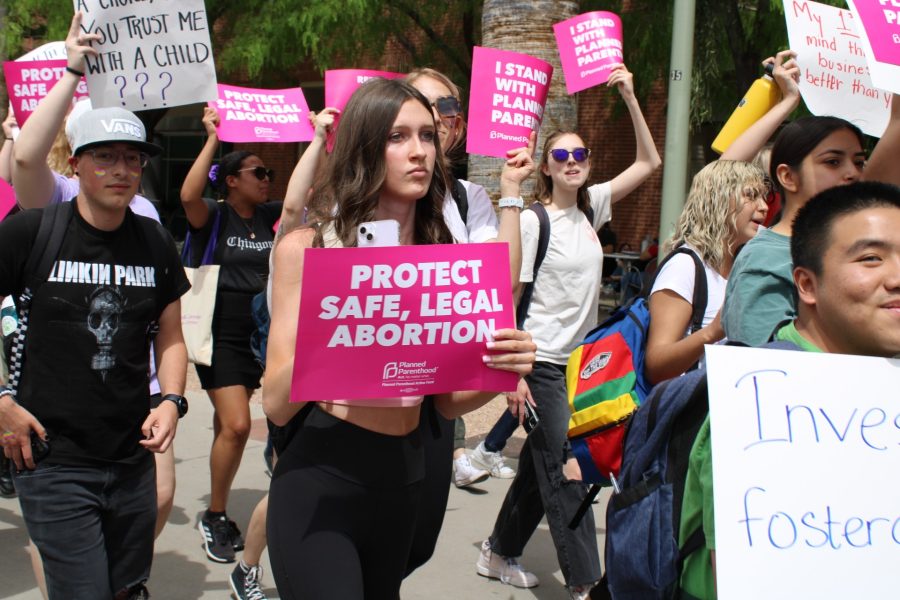GPSC will hold its elections in conjunction with the ASUA general election this week for the first time in hopes of bolstering voter turnout.
Voting to fill the Graduate and Professional Student Council positions will be held today and Wednesday, which coincides with elections for the Associated Students of the University of Arizona, according to Heath Vescovi-Chiordi, a public administration graduate student and GPSC elections director.
“Everything has been really good and flowing really well with ASUA,” Vescovi-Chiordi said. “So, we thought holding [elections] at the same dates would increase voter turnout, both for graduates and undergraduates.”
GPSC elections were previously held around either the last week of March or the first week of April, Vecovi-Chiordi said.
All seats are open this election, with hopefuls vying for spots representing each of the colleges and the positions of president and vice president.
Zach Brooks, a second language acquisition graduate student and current president of GPSC, is running unopposed for the position of GPSC president. If elected again, Brooks will be the first GPSC president elected to three terms.
Brooks said that the main concern this next year for GPSC will be to stay connected with every graduate student as GPSC continues to expand. GPSC will have about $100,000 more to dole out in travel grants and $50,000 more for research grants this year.
Brooks said that he will also advocate for a guaranteed tuition plan for masters and professional students. The Arizona Board of Regents called on the state universities to adopt a multi-year tuition plan at its meeting last month, but that would only apply to undergraduate students.
“This is great for undergraduates, but we want to make sure the same kind of idea applies to graduate students,” Brooks said.
Another one of the key platforms Brooks is running on is to get the UA to invest more in its graduate students, whether through better wages, greater transparency with fees or a lightened teaching load.
“We’re 23 percent of the students. A lot of your first- and second-year courses are taught by graduate students,” Brooks said. “We want to make sure they’re invested in and looked after.”
Brooks said that he would have liked to have someone run against him for president, but that he looks forward to the opportunity to serve again.
“It’s really exciting to be able to represent a really high-end group of people,” Brooks said.
The position for vice president of GPSC will be more competitive. Iman Daryaei, a chemistry graduate student and current GPSC vice president, and Alan Kohler, a second language acquisitions graduate student and a GPSC at-large representative, are in contention for the position.
Daryaei was elected as an at-large candidate before being elected as vice president last year.
He said he wants to expand students’ access to textbooks and academic journals produced on the UA campus.
“One-third of graduate students become faculty members in the future,” he said. “If graduate students have enough information about open access, then by the time they become professors they can [take advantage].”
Daryaei said that he was a part of the discussions that led to GPSC and ASUA signing a Memorandum of Understanding recognizing that GPSC is the primary representative of graduate students. He added he hopes that this will lead to better collaboration in the future.
“We felt that we can be better representatives for graduate students,” Daryaei said. “Now with the MOU we are in a position where all students can benefit.”
Kohler served as the marketing and communications administrator for GPSC before being elected last year as an at-large representative.
Kohler said GPSC has been on an upward trajectory in terms of influence and that he wants to help continue that trend, while also securing stable funding for GPSC and creating an alternative source of funding through an endowment fund.
“I’m interested in keeping the train rolling and pushing the levels of support that we are able to offer students, both financially and in terms of advocacy,” Kohler said.








